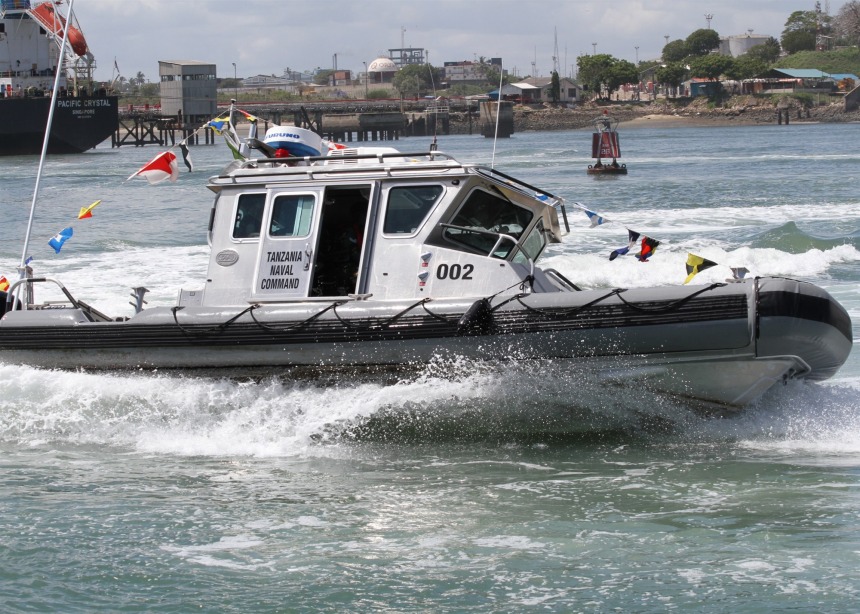ADF STAFF
The Tanzania Navy recently deployed a vessel in the Mozambique Channel to help the Southern African Development Community (SADC) and international partners address an array of sea crimes, including illegal fishing, drug smuggling, oil theft and human and weapons trafficking.
While piracy has declined in the region, limited maritime security along the channel leaves important coastal cities in Mozambique and other countries, including Djibouti, Kenya, Tanzania, and island states such as Mauritius and the Seychelles, vulnerable to maritime threats.
The channel, a 1,600-kilometer-long waterway between Madagascar and East Africa that carries about 30% of global tanker traffic, is a major route for drug, weapons and human trafficking, illicit trades that are widely believed to help fund terrorist groups in the region.
The Tanzanian Navy vessel joins three South African Navy warships in the channel, as well as those of international allies. Its deployment was announced at the SADC’s annual Standing Maritime Committee meeting in mid-March.
At the SADC gathering, Vice Adm. Monde Lobese, chief of the South African Navy, said the region’s navies “must ensure that there are no threats posed to the free flow of trade.”
“I don’t have to remind our land-locked brothers of SADC that even their commerce and trade flows through the harbors of their coastal neighbors,” Lobese said in a report by South African news website Independent Online. “The peace and stability of the entire SADC region is intricately related to our ability to reduce threats to our maritime security.”
In Mozambique, the terrorist group Ansar al-Sunna seized the strategic port town of Mocímboa da Praia, about 80 kilometers south of Palma, in 2017 and 2020. The port in the conflict-ridden Cabo Delgado province reopened in November 2022 after nearly two years.
Analysts say that strengthening maritime security can help bolster regional counter-insurgency efforts. The operation to recapture Mocímboa da Praia included a surprise attack by Mozambican Soldiers from the sea.
In recent years, illegal, unreported and unregulated (IUU) fishing has also emerged as a regional scourge, costing East Africa about $1 billion. The continent loses about 100,000 tons of fish and close to an estimated $11.5 billion annually to illegal fishing, according to the Financial Transparency Coalition.
The Indian Ocean Commission created the Regional Fisheries Monitoring Plan (PSRP) in 2007 to address the issue. Participating nations — including Comoros, France on behalf of Réunion island, Kenya, Madagascar, Mauritius, Mozambique, Seychelles and Tanzania — routinely share and exchange information to help conduct illegal fishing investigations.
“The success of our plan (PRSP) rests with pooling resources and efforts to plan and coordinate joint missions, maritime and air patrols,” Jude Talma, the plan’s regional coordinator told South African newspaper The Citizen.
The Standing Maritime Committee meeting was attended by senior naval representatives from Botswana, the Democratic Republic of Congo (DRC), Namibia, Tanzania, South Africa and Zimbabwe.
Members worked on operationalizing the SADC’s integrated maritime security strategy that will help member states respond to emergencies or issues that threaten sovereignty. South Africa will host a course for regional representatives on “naval coordination and guidance of shipping” that helps navies monitor shipping activity in their waters. The South African Navy plans a “train-the-trainer” course on the same topic.
Naval leaders say the training and increased regional partnerships will lead to safer shipping and protect economic growth.
“The peace and stability of the entire SADC region is intricately related to our ability to reduce threats to our maritime security,” Lobese said.

